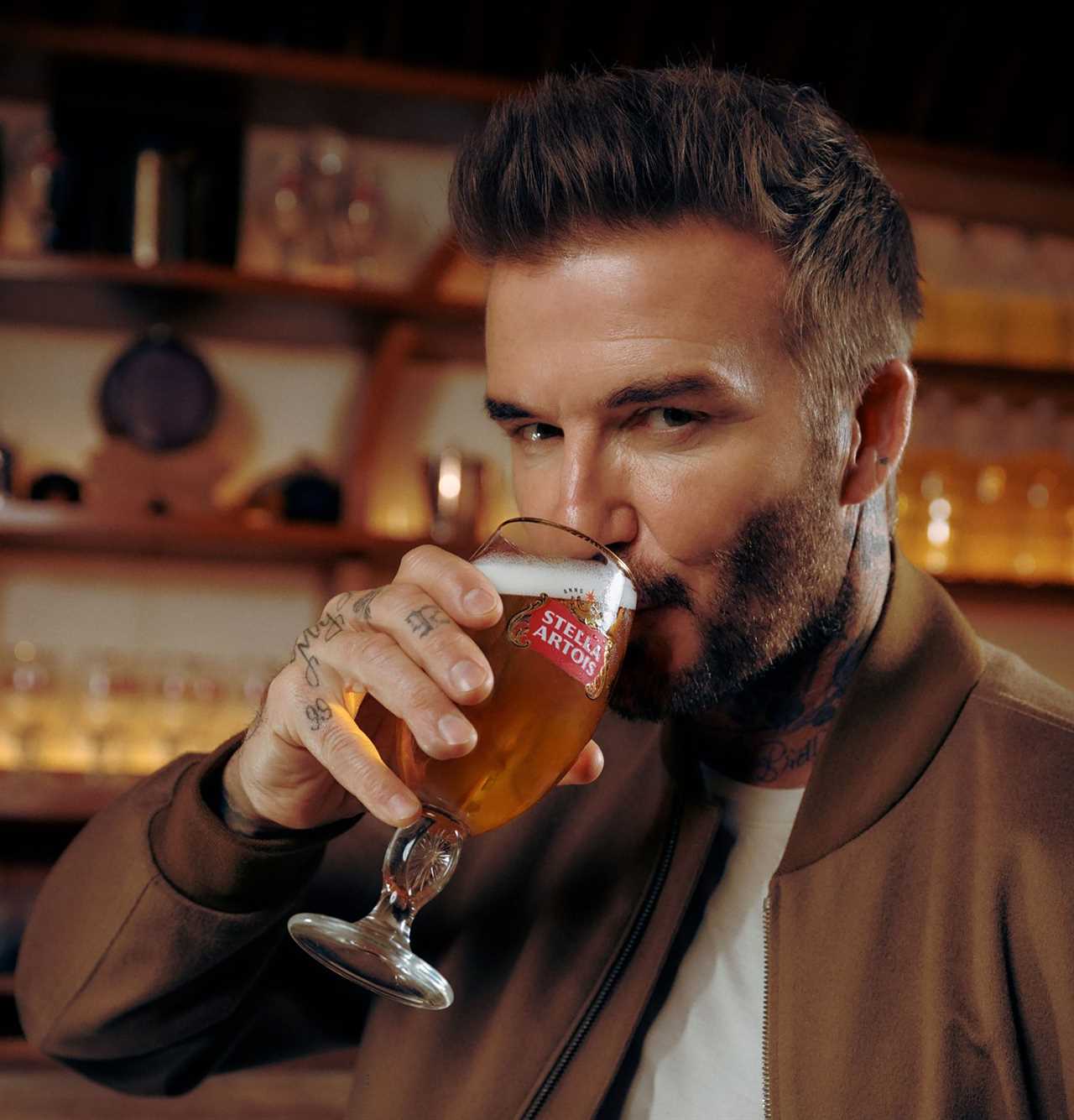
The potential implementation of restrictions on prime-time alcohol advertisements is stirring debate among policymakers and industry stakeholders, as a broader discussion on public health strategies unfolds. While calls for minimum alcohol pricing from NHS leaders appear to have hit a roadblock, the consideration of a ban on alcohol ads, including prominent campaigns like those featuring David Beckham for Stella Artois, is gaining momentum within a draft of a comprehensive ten-year health plan.
Industry Concerns and Public Health Priorities:
Amidst discussions of a potential ban on alcohol advertising during peak viewing hours, concerns have been raised by industry voices, warning of significant economic repercussions for alcohol-related businesses, with possible ripple effects on struggling pubs. This has sparked a contentious debate, with Shadow Business Secretary Andrew Griffith criticising the move as government overreach, decrying it as detrimental to the already beleaguered pub sector. However, the British Beer and Pub Association has emphasised the importance of targeting interventions towards those who consume alcohol at harmful levels, rather than imposing sweeping restrictions affecting the majority.
Broader Impacts and Industry Partnerships:
Beyond the economic implications, the proposed advertising restrictions could have far-reaching effects on industries intertwined with alcohol promotion, such as sports sponsorships. Notably, partnerships between beer companies and sports like rugby league may face challenges under stricter advertising regulations, potentially reshaping the landscape of sports marketing. The potential consequences of such changes are under scrutiny, with concerns raised about the future of such partnerships in an evolving regulatory environment.
Policy Shifts and Public Health Strategies:
Amidst the ongoing discourse, the government has clarified its stance, indicating that the forthcoming ten-year health plan will not include a blanket ban on alcohol advertising but is exploring more targeted restrictions aligning with regulations on unhealthy food promotion. This move comes in the wake of the decision to prohibit junk food ads during specific evening hours, signalling a broader shift towards regulating advertising practices to address public health concerns. Meanwhile, the shelving of minimum pricing proposals underscores the complexities of implementing measures to tackle the societal costs associated with alcohol-related harm, crime, and disorder.
In light of these deliberations, the delicate balance between industry interests, public health imperatives, and regulatory interventions remains at the forefront of policy discussions. As stakeholders navigate the intricate terrain of alcohol advertising regulations, the broader implications for public health outcomes and economic sectors are under scrutiny, highlighting the multifaceted considerations at play in shaping effective and equitable strategies to address alcohol-related harms.
Did you miss our previous article...
https://trendinginthenews.com/uk-politics/sir-keir-starmers-strategic-approach-to-labour-dissent-on-welfare-reform






